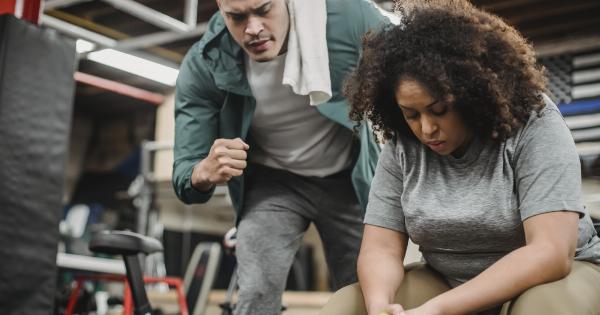If you have spent countless nights tossing and turning in bed, desperately trying to fall asleep, you are not alone. Insomnia is a very common condition that affects millions of people worldwide.
The good news is that there are many ways to improve your sleep habits, and in this article, we will introduce you to three ‘doctors’ that can help you overcome your sleep struggles.
Doctor 1: Your Bed
The first ‘doctor’ you should consult when struggling to sleep is your bed. If your mattress is old, lumpy, or sagging, it may be time to invest in a new one.
A good mattress should provide adequate support for your body and align your spine properly. The type of mattress you choose will depend on your personal preferences and budget, but some popular materials are memory foam, latex, and innerspring.
Additionally, your pillows and bedding can also affect the quality of your sleep. Choose pillows that support your neck and keep your head in a comfortable position.
Opt for bedding made from breathable materials that regulate your body temperature, such as cotton or bamboo. Wash your bedding regularly to keep it fresh and free of allergens.
Doctor 2: Your Lifestyle
The second ‘doctor’ you should consult when struggling to sleep is your lifestyle. Several factors can affect your ability to fall asleep and stay asleep. Here are some tips to improve your sleep habits:.
Reduce Stress
Stress can make it difficult to relax and fall asleep. To reduce stress, try relaxation techniques such as meditation, deep breathing, or yoga. Also, avoid stimulating activities before bed, such as watching TV or using electronic devices.
Instead, engage in calming activities, such as reading a book or taking a warm bath.
Exercise Regularly
Regular exercise can help you fall asleep faster and improve the quality of your sleep. However, avoid exercising too close to bedtime, as it can increase your heart rate and make it harder to fall asleep.
Aim to exercise earlier in the day, such as in the morning or afternoon.
Maintain a Regular Sleep Schedule
Try to go to bed and wake up at the same time every day, even on weekends. This helps regulate your body’s natural sleep-wake cycle and can improve the quality of your sleep.
Doctor 3: Your Environment
The third ‘doctor’ you should consult when struggling to sleep is your environment. The conditions of your bedroom can have a significant impact on your sleep. Here are some tips to optimize your sleep environment:.
Keep the Room Dark and Quiet
Exposure to light can interfere with your body’s production of melatonin, a hormone that regulates sleep. Install blackout curtains or shades to block out external light sources, such as streetlights or car headlights.
Additionally, use earplugs or a white noise machine to block out any sounds that may disrupt your sleep.
Keep the Room Cool
A cooler room temperature can promote better sleep. Set your thermostat to a comfortable temperature, ideally between 60-67°F (15-19°C), and use a fan or air conditioner to circulate cool air.
Keep the Room Clutter-Free
A cluttered room can add to feelings of stress and anxiety, making it harder to relax and fall asleep. Keep your bedroom free of clutter and mess, and reserve it strictly for sleep and relaxation.
Conclusion
Insomnia can be a frustrating and debilitating condition, but by consulting these three ‘doctors’, you can improve your chances of getting a good night’s sleep.
Remember to invest in a good mattress, maintain healthy sleep habits, and optimize your sleep environment. With patience and persistence, you can overcome your sleep struggles and enjoy better health and well-being.































